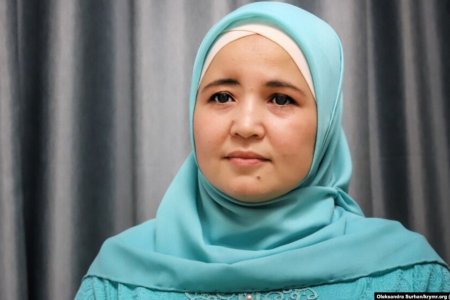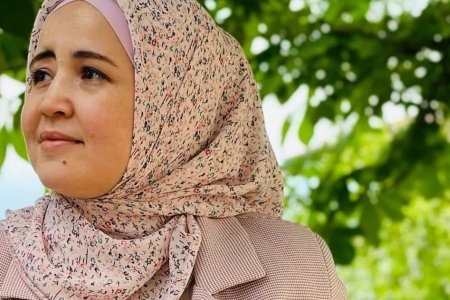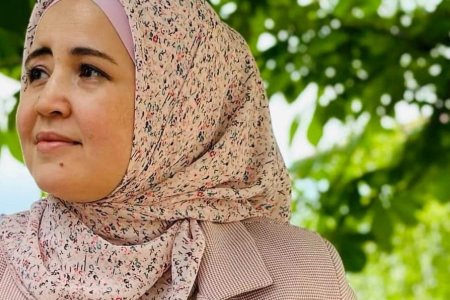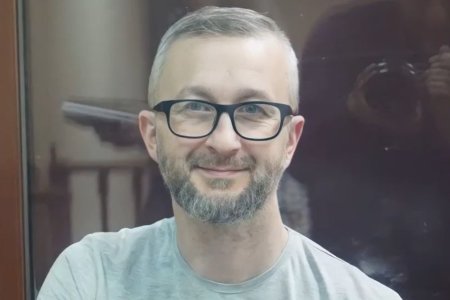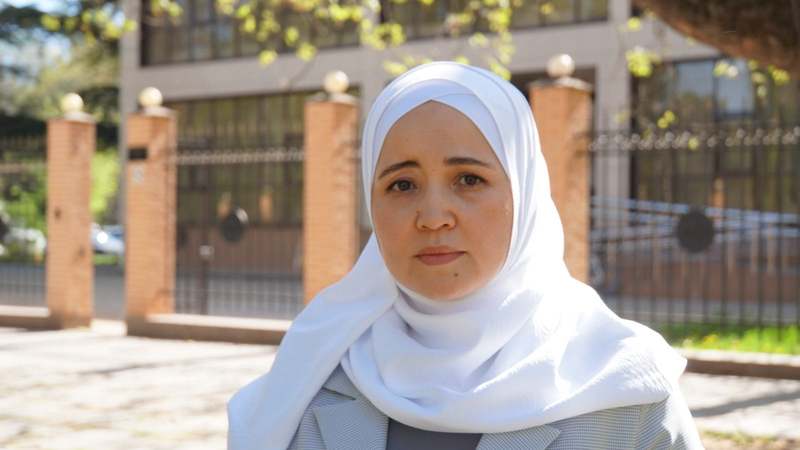
A ‘magistrate’s court’ in Russian-occupied Crimea has found prominent journalist and human rights defender Lutfiye Zudiyeva guilty of something that Russia calls ‘abuse of freedom of mass information’. The outcome was not unexpected, but is important, both because it was part of a major offensive against a world-renowned journalist and voice for the persecuted in occupied Crimea, and because of its implications for those commenting on Russia’s mounting religious and political persecution.
The hearing before the ‘magistrate’s court’ in occupied Simferopol was over two Facebook posts dating back to January 2021. The first was about the Russian court hearing at which the prosecution demanded huge sentences against three recognized Crimean Tatar political prisoners – Enver Omerov, his son Risa Omerov and Aider Dzhapparov. The second was about peaceful gatherings in support of the political prisoners in different parts of Crimea. She and her family were subjected to an armed search on 22 February, after which she was briefly detained, over those Facebook posts and two others, almost regarding Russia’s political repression. Russia’s notorious ‘Centre for countering extremism’ had claimed, and, on 17 April ‘magistrate’ Sergei Moskalenko agreed that Zudiyeva had ‘abused freedom of mass information’ under Article 13.15 § 2 of Russia’s code of administrative offences. The alleged ‘abuse’ lay in her having provided information about an organization which Russia has banned as ‘terrorist’, without mentioning this ban.
The fine of two thousand roubles could have been worse, but that does not justify a conviction which is absurd on two counts. Russia is using a flawed ruling from 2003 which declared the peaceful, transnational Muslim organization Hizb ut-Tahrir ‘terrorist’ as a weapon against Crimean Tatar civic activists and members of independent Muslim communities in occupied Crimea. Hizb ut-Tahrir is legal in Ukraine, and Russia has never provided any adequate explanation for the 2003 ruling. Its ‘trials’ of Crimean Muslims, especially civic journalists and activists from the Crimean Solidarity human rights movement have received international condemnation and all those sentenced to long terms of imprisonment are recognized political prisoners. Not only are the charges flawed, but the prosecution is invariably based on fabricated ‘evidence’, with Russia particularly using fake ‘experts’ and anonymous ‘witnesses’ who may never have met the defendants. There are now well over 100 political prisoners facing or serving long sentences on totally spurious ‘terrorism’ charges, based solely on unproven involvement in Hizb ut-Tahrir. As Zudiyeva explains, since several men may be put on ‘trial’ together, it has become standard to identify these groups by where the men are from and the basic charge, i.e. the First Bakhchysarai Hizb ut-Tahrir case, etc. This was simply the name, the defence insisted, and should not have triggered the requirement that prohibited organizations are stated to be prohibited. It is also dubious that the demand should be made of social media posts. This was clearly understood by Ruslan Shambazov, the notorious head of the ‘Centre for countering extremism’ since he mentioned in his report that Lutfiye Zudiyeva “presented herself” as a journalist, with this being why her private Facebook page “is used by her for work purposes”.
He did not explain what these alleged ‘purposes’ were, and ‘magistrate’ Moskalenko rejected the defence’s application to have him called in for questioning.
Both Zudiyeva and her lawyer, Nazim Sheikhmambet, have stated that the conviction and fine will be appealed, with Zudiyeva pointing out that such administrative proceedings are initiated on a daily basis as part of the general pressure on journalists, civic activists, human rights defenders, and lawyers.
Zudiyeva is herself a victim of such political persecution, and the appeal is necessary but unlikely to be successful. On 9 April, the occupation ‘Crimean high court’ rejected Zudiyeva’s appeal against the previous conviction from 20 March which took all of eight minutes and was held in Zudiyeva’s absence. That first charge was under Article 13.15 § 2.1, with the alleged ‘abuse of freedom of mass information’ in the fact that a text on a personal Facebook page did not mention that Russia calls RFE/RL a ‘foreign agent’ (details here).
Very many of Lutfiye Zudiyeva’s fellow human rights journalists and activists from Crimean Solidarity first faced administrative prosecution and, when they refused to fall silent or leave Crimea, were then arrested and sentenced to long terms of imprisonment on supposed ‘Hizb ut-Tahrir’ charges. Publicity about all of such heavy-handed measures is vital to protect Lutfiye and the other courageous rights defenders who ensure that the world learns what is happening in occupied Crimea.
